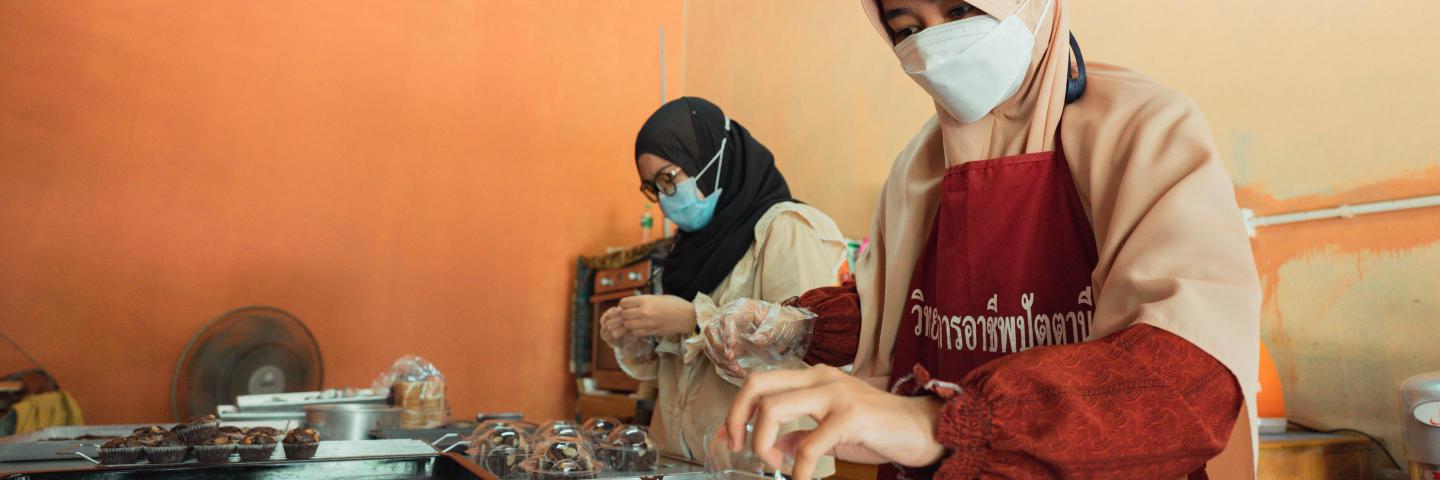

Youth facing the greatest inequalities and discrimination have accessible and flexible pathways to decent work.

Following significant poverty reductions in the last 30 years, reducing the poverty headcount from 65 percent in 1988 to 6.2 in 2019, Thailand is after many years experiencing growth in numbers of impoverished people. With the World Bank projections of as high as 7.4 percent of households falling into poverty with insufficient social protection programmes and social insurance schemes, the number of non-poor insecure households has been steadily growing. This has largely been due to the COVID-19 pandemic and the restrictions introduced to stop the spread of the virus.
With limited growth in 2019 and severe economic contraction in 2020, Thailand has experienced economic losses both due to the closure of tourism, as well as reduced demand for export goods in automotive and other industries. Additional losses in agricultural exports, industry and service sectors have impacted the country and its workers still further.As always during times of economic hardship, the most vulnerable segments of the population: informal workers, migrant workers, women, people living with disabilities, children, and the elderly, are hit the hardest through income loss and affordability crises. Although deployed by the government, social protection measures cannot reach everyone.
The situation of informal and migrant workers from the Deep South of Thailand in neighboring Malaysia is of special concern, as they are rarely entitled to any form of social support, despite losing incomes that often supported an entire family.
Similarly, Myanmar refugees in Thailand’s north are facing years of barriers to formally access the labor market. Limited to informal jobs and camp-based settings, the potential of these workers remains untapped, and they are forced to rely on humanitarian aid. Getting this demographic structured access to the labor market is vital to their future self-reliance.

In Thailand, we offer vulnerable young people aged 15-25 flexible pathways to decent work and transferable life skills, by combining vocational and technical training with labor market access, internships, on the job training and other forms of introduction of vulnerable youth to employers. We aim to improve economic opportunities for young people in the Deep South, while promoting social cohesion between different communities. We do this in a way that fits the needs of the youth and the needs of the labor market, by actively cooperating with Technical and Vocational Education and Training providers and corporate partners.
In 2021, we:
”In the deep south is hard to find job opportunities, I have a dream to open a bakery shop and distribute my products in the south. After I joined the project, I had a lot of bakery orders from clients and it made me very happy to earn more income”
- Nasrin Kama, young person from USAID ACHIEVE Project